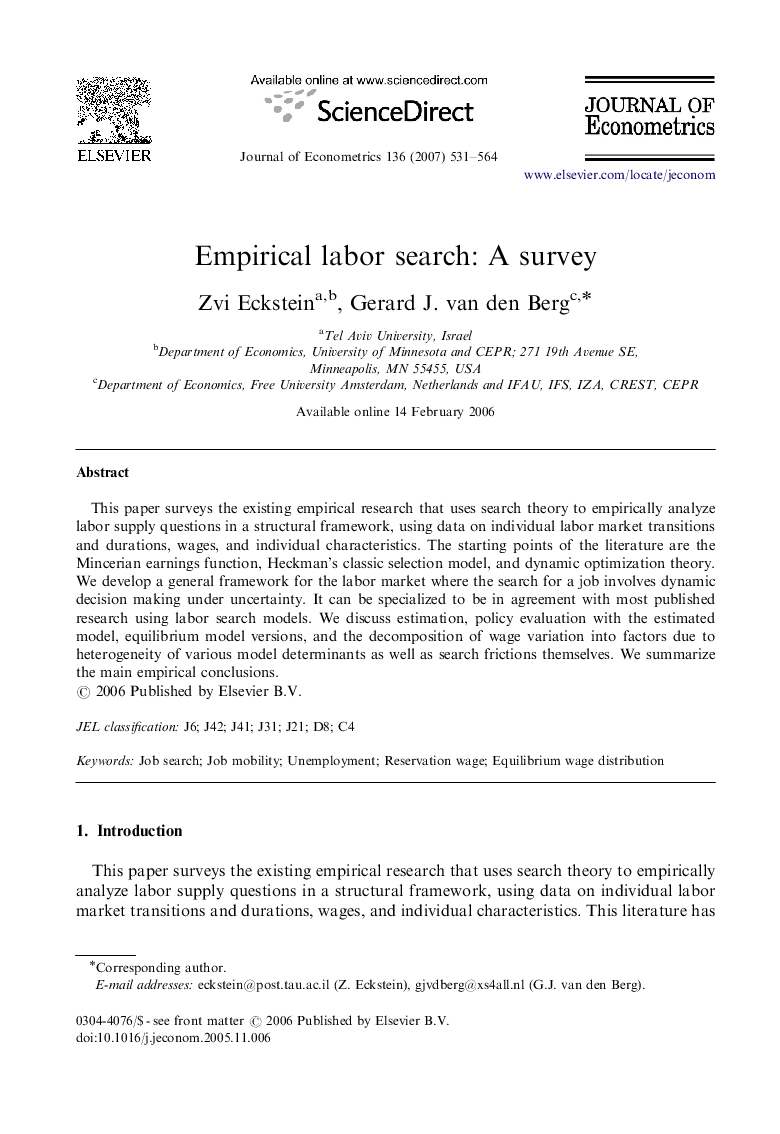| Article ID | Journal | Published Year | Pages | File Type |
|---|---|---|---|---|
| 5097408 | Journal of Econometrics | 2007 | 34 Pages |
Abstract
This paper surveys the existing empirical research that uses search theory to empirically analyze labor supply questions in a structural framework, using data on individual labor market transitions and durations, wages, and individual characteristics. The starting points of the literature are the Mincerian earnings function, Heckman's classic selection model, and dynamic optimization theory. We develop a general framework for the labor market where the search for a job involves dynamic decision making under uncertainty. It can be specialized to be in agreement with most published research using labor search models. We discuss estimation, policy evaluation with the estimated model, equilibrium model versions, and the decomposition of wage variation into factors due to heterogeneity of various model determinants as well as search frictions themselves. We summarize the main empirical conclusions.
Related Topics
Physical Sciences and Engineering
Mathematics
Statistics and Probability
Authors
Zvi Eckstein, Gerard J. van den Berg,
